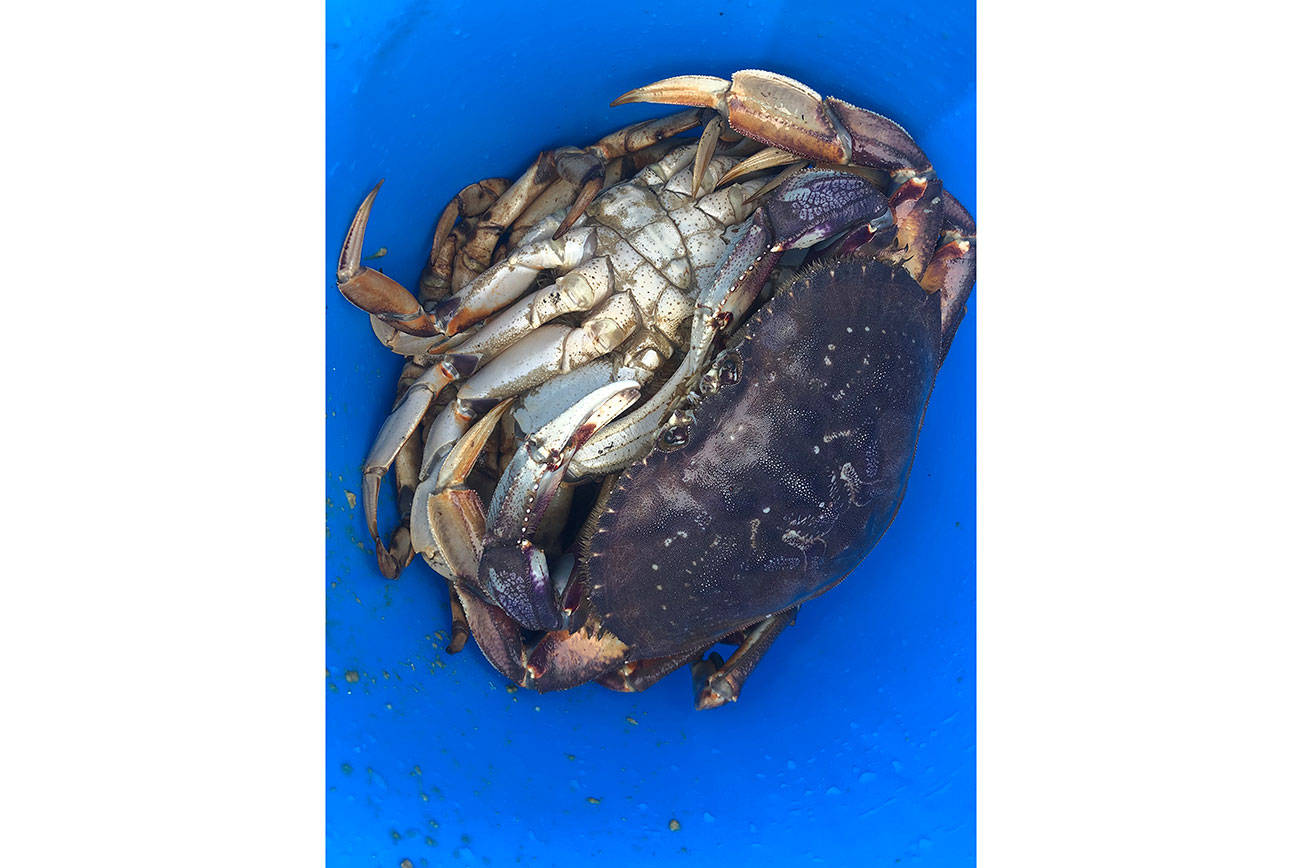Crabbing season is in full swing, but some crabbers may think they are pulling too many empty pots for it to just be bad luck, if they’re even pulling up pots at all.
Many Whidbey Island crabbing enthusiasts have taken to social media in recent weeks to complain about thieves stealing pots and poaching the tasty crustaceans from other people’s gear. The commenters seem to think the problem is worse than in past years.
“That is a recurring complaint, year after year, after year,” said Ralph Downes, a state Department of Fish and Wildlife enforcement officer who patrols waters around Whidbey Island. “It is an ongoing thing, and it’s something we try to look at and focus on every year. I wish we could focus more on it.”
In fact, Fish and Wildlife officers responded to a complaint of a man just last month for “unlawful interference” of recreational pots in Crescent Harbor, according to Downes.
“We seem to be getting the majority of complaints from Crescent Harbor,” he said. “Not that we don’t get them from (elsewhere), but Crescent Harbor seems to be the hot spot.”
It’s notoriously difficult to catch crab pot thieves in the act. Island County Prosecutor Greg Banks said his office has only received two crab-related referrals from Fish and Wildlife this year. They were from a single incident from early July in which two guys allegedly pulled pots that did not belong to them.
Yet if your pot comes up empty, it doesn’t necessarily mean that it’s been picked, Downes advised.
“The vast majority of people think their pots are stolen, and they are not,” he said. “They were sent to sea by the elements or Poseidon himself, not stolen.”
Lost gear is an issue in Puget Sound. The National Oceanic and Atmospheric Administration estimates about 10,000 recreational crab pots are lost each year in Washington state, resulting in harm to the fisheries due to “ghost fishing.” Ghost fishing occurs when derelict gear continues to trap crab, which eventually die when the bait runs out.
Downes said Monday that his team was planning to do a sweep this week of marine areas 8-1 and 8-2, two popular fishing and crabbing spots around Whidbey Island, to pull any pots that were left out beyond approved fishing days.
“I would estimate that I’ll probably find about 100 pots,” he said.
Before sending gear down, crabbers should factor in the current and depth of their fishing spot, as well as the weight the pot’s buoys can accommodate. Most crab pot buoys can float about six pounds, Downes said.
“It’s a balance of weight, depth, and buoyancy and they just need to be aware of it,” he said.
Some crabbers on social media explained that they have resorted to using zip ties on their pots to prove that someone has pilfered their crab; a cut zip tie is the herald of a thief. Downes warned that crabbers who do this must be careful to not block the biodegradable tie that allows the crab to get out of a pot if it’s unclaimed after a period of time or lost.
“(Crabbers) can do whatever they want as long as they do not render the biodegradable mechanism inoperable,” he said. “If they want to get tricky, they can do whatever they want, but it still needs to be legal to fish.”
If a crabber does believe his or her pot has been stolen, or even simply lost, they can report it on the Fish and Wildlife website or call 855-542-3935.
Crab season is open in marine areas 8-1 and 8-2 Thursday-Monday. Pots cannot be set or pulled out of the water from one hour after official sunset to one hour before official sunrise. The season closes on Labor Day, Sept. 7.



